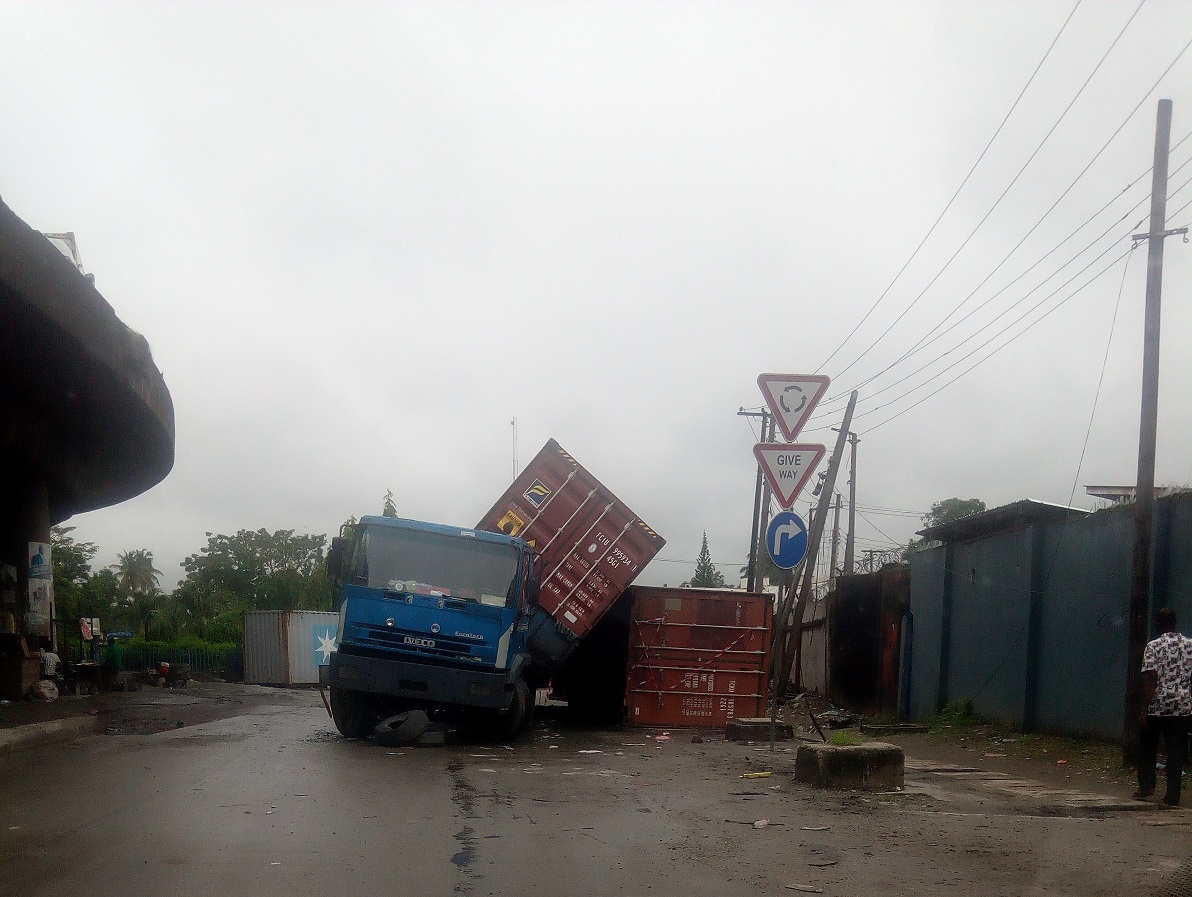The Federal Road Safety Corps (FRSC) has agreed to partner with the management of the Nigerian Ports Authority (NPA) to address the menace posed by falling trucks in Lagos State.
The Lagos Sector Commander of FRSC, Corps Commander, Olusegun Ogungbemide, made the pledge in a statement through the Route Commander, Sector Public Education Officer, Mrs RC Sonusi, in Lagos on Sunday.
Ogungbemide said that in response to the menace posed by falling trucks in Lagos State, FRSC and NPA had agreed to partner in addressing the challenge.
“This was the outcome of the meeting held between the Managing Director/Chief Executive of NPA, Alhaji Mohammed Bello-Kolo and Lagos State Sector Commander of the FRSC.
“We both agreed on the modality for the diligent implementation of the MoU earlier signed between the FRSC and NPA particularly in the area of improving the capacity and efficiency of truck drivers,” he said.
Both parties further agreed that while FRSC Operatives might not necessarily be involved directly in the ports trucking operations, FRSC would collaborate to ensure that the trucks meet minimum safety standards and are properly latched before being allowed out of the port terminals.
The corps commander said that the two organisations would have representatives to see what had not been implemented in the earlier MoU and ensure its implementation.
He said that both parties also agreed on the need to support the Federal Government’s policy on ease of doing business.
Ogungbemide said that they had agreed with the management of NPA to support in training the truck drivers for improvement in their skills.
He said that NPA should liaise with the Lagos State Government to secure a holding bay where trucks impounded by FRSC could be kept for safety.
The Lagos FRSC boss reiterated his commitment in engaging relevant stakeholders in addressing the menace of road traffic crashes involving heavy duty trucks.
Ogungbemide expressed optimism that the strategic partnership with NPA would go a long way in solving the problem of unlatched and overloaded trucks.
Credit: NAN.

































































